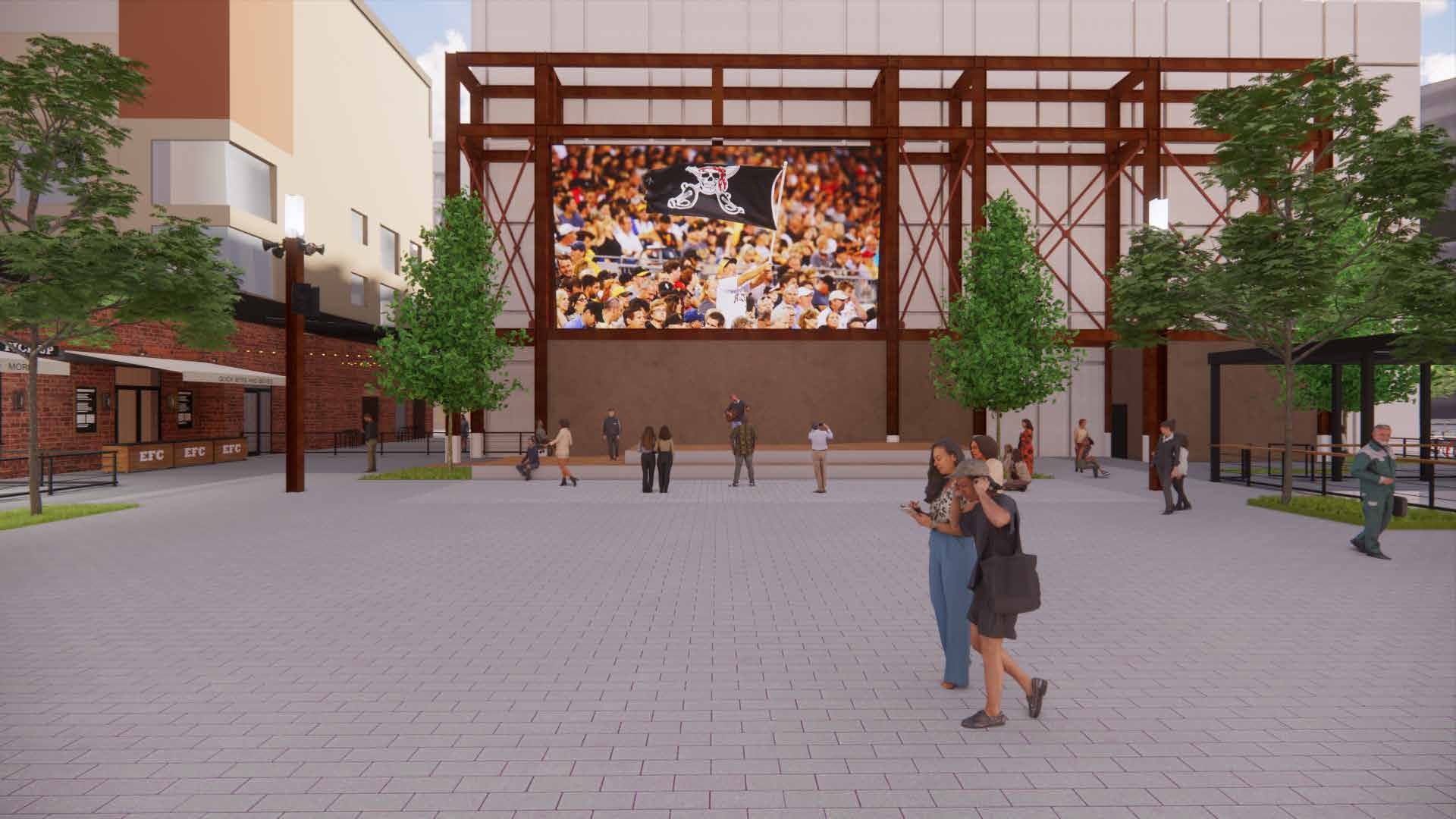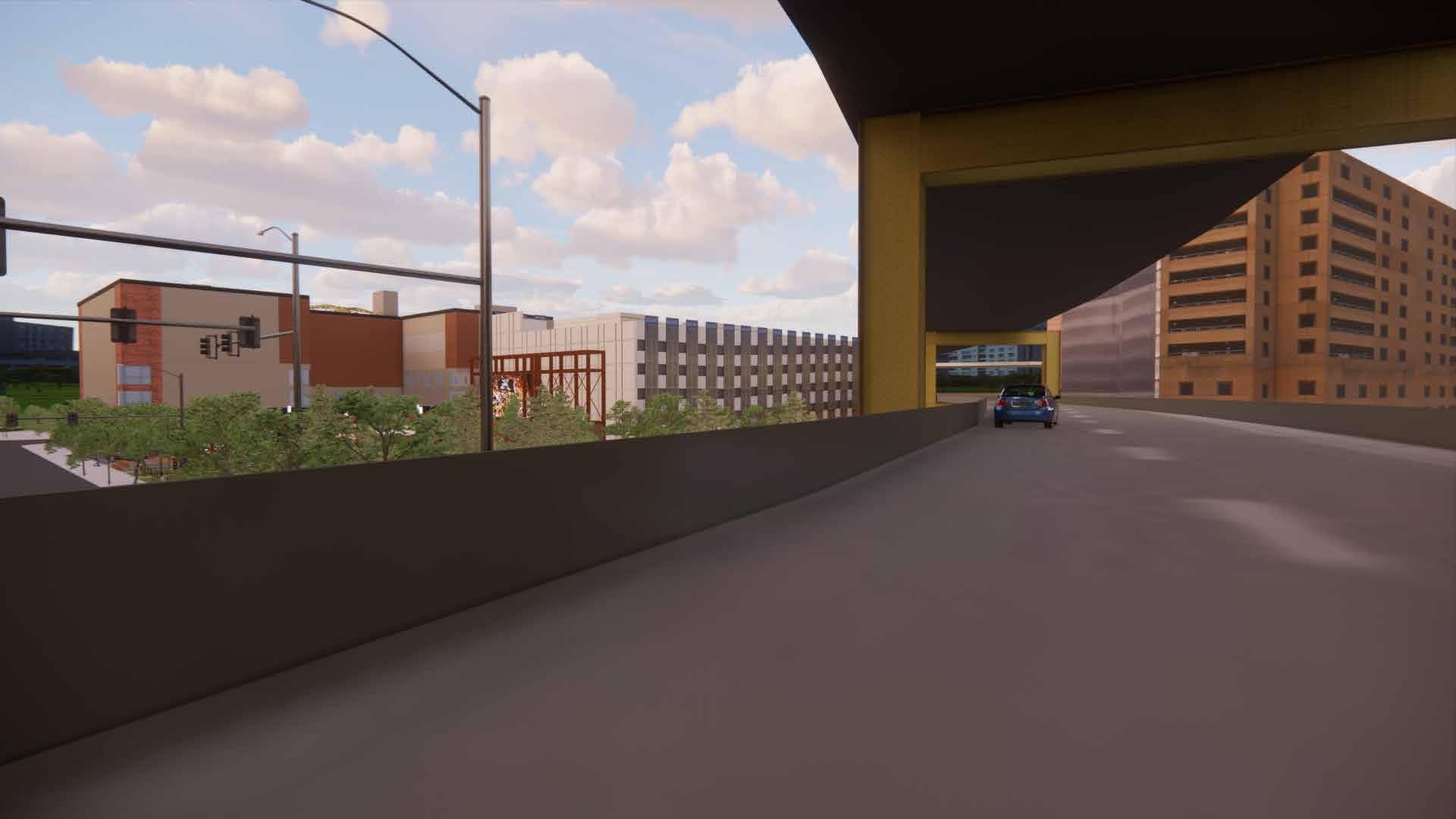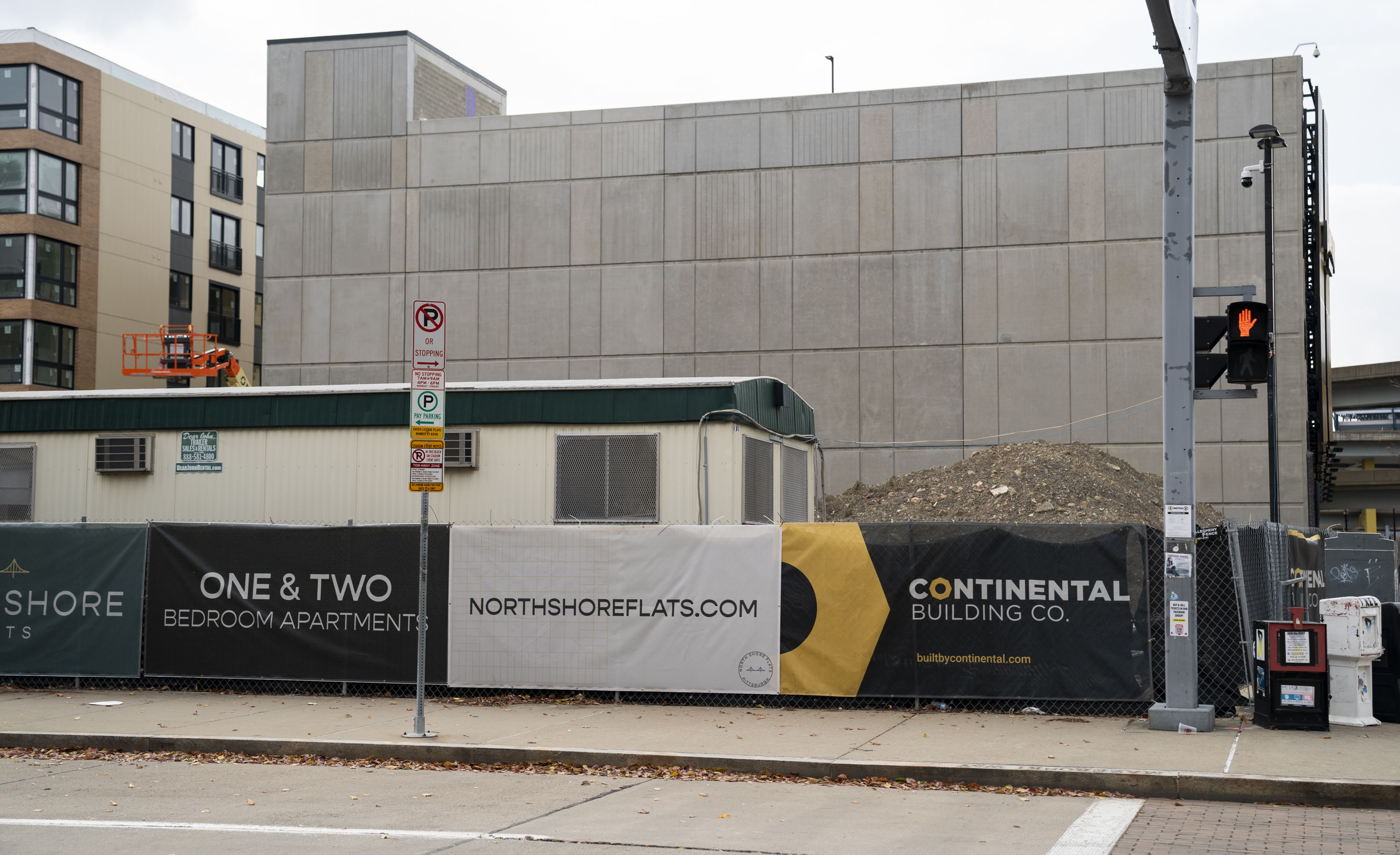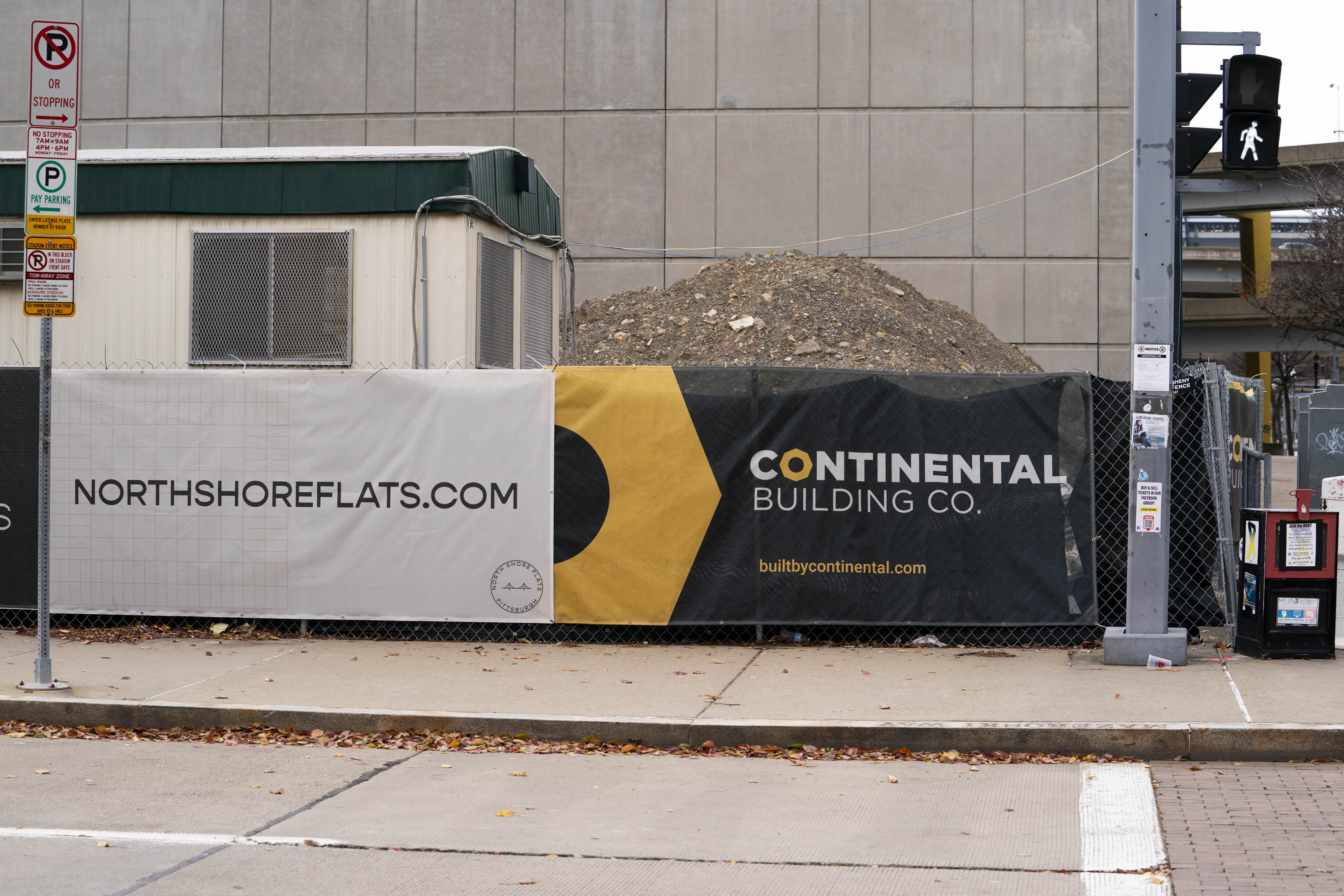
Pirates’ big-picture plan gains panel’s approval
The Pittsburgh Pirates scored a key off-the-field victory Tuesday in their bid to build a new entertainment plaza adjacent to PNC Park.
City Planning Commission members backed a proposal to install a 22.8-foot-by-40.5-foot video screen at the west end of the plaza only weeks after raising concerns about whether it could be seen by passing motorists on Interstate 279.
The screen is an integral element of the overall project. On baseball game days, it will show Pirates-centric content like highlights. At other times, it could be used to show movies, videos, or even watch parties if the Pirates were to make the playoffs.
But under the city’s zoning code, video displays cannot be seen from roadways or ramps where the speed limit exceeds 35 mph, raising questions about the viability of the screen. So team representatives made several changes to the plan after a commission briefing five weeks ago to try to further block the view of the video board from the highway.
Joe Luzio, project director of the Chicago-based Barker/Nestor architectural firm, said two key changes involved moving the screen 6 feet deep into its supporting structure and angling it more toward the floor of the plaza.
In addition, the Pirates will plant 30-foot-high white pine trees in the parking lot across from the plaza in a bid to further obstruct views from I-279. The trees can grow to 55 feet high.
The screen, Mr. Luzio said, will be “visible but obstructed” for 125 linear feet of highway. At 50 and 35 mph, it will be in sight for 1.6 seconds and 2.4 seconds, respectively, he added.
“With the video board visible, it’s quite short,” he said. “It really is limited visibility of motion on the screen.”
Team officials considered other options like building a supplemental structure to block the screen, angling the board more toward the apartment complex being erected next to it, or extending the steel structure holding it.
But those alternatives “ultimately were not feasible for one reason or another,” Mr. Luzio said.
The Pirates are working with HiLife Hospitality, the group behind the Burgatory restaurant chain, on the plaza development. They view it as a way to further enliven the North Shore on game days and to make it a destination at other times by offering movies, entertainment, concerts, fitness classes and other activities.
“This is a very important piece of a great development that will further bolster the North Shore as the premiere entertainment destination of the region,” said Shawn Gallagher, the attorney handling the venture before the commission.
In response to a question about whether the screen will show content that could distract drivers, Mr. Gallagher said officials would comply with whatever the zoning code allows.
“I don’t know that if it’s a game or any other video quality material, that’s going to change the safety of anybody driving,” he said.
Commission Vice Chairwoman Rachel O’Neill thanked the team for providing more information and “really thinking this through a little bit.”
“We had some concerns about visibility and just frankly understanding how this [screen] would operate relative to being near a highway. I think that the updated renderings and the updated studies really give us a better understanding of how that is going to be impacted,” she said.
The 30,000-square-foot outdoor plaza will be located at West General Robinson Street and Mazeroski Way across from the home plate entrance of PNC Park. Besides the video screen, it will feature two stages, a covered beer garden next to a food stand and other amenities.
It will be next to a 15,000-square-foot restaurant, bar and experiential entertainment venue being built in the ground level of the apartment complex. The Pirates will own that space and the plaza itself.
The commission’s vote is not the last one related to the screen. It recommended approval to City Council, which will have the final say on whether the Pirates get the conditional use needed for the project.
Also Tuesday, developer Michael Troiani briefed the commission on his plan to demolish four Downtown buildings — three on Market Street and one on First Avenue — and replace them with four bocce courts.
The proposal is the latest attempt in his four-year battle to raze the buildings, including the former Froggy’s restaurant, after the commission blocked his bid in 2020. Years of court battles ensued before the state Supreme Court last December declined to review two Commonwealth Court rulings that barred Mr. Troiani from taking down the structures.
The developer is hoping he will get a more favorable decision this time around from the commission since the recreation concept he is proposing is allowed as a matter of right in the zoning district and amounts to a formal project development plan.
Three years ago, the commission rejected the demolitions because the buildings are part of a Firstside Historic District listed on the National Register of Historic Places. At the time, it left the door open for Mr. Troiani to return with a formal project development plan for the site.
On Tuesday, the panel’s chief concern had to do with a vinyl covered chain link fence that would surround the bocce courts.
Commission member Peter Quintanilla said the chain link fence is of a “very rural character” and not the type one typically would see in Downtown.
“Considering that this is Downtown Pittsburgh, chain link, it’s very common. It feels to me like it’s not very inviting, the way the chain link would look in general,” he said.
He urged Mr. Troiani and his representatives to look at other options.
At one time, the developer had plans for a 30-story high-rise at the site featuring offices, residences, retail, and parking. He no longer is pursuing that.
Mark Belko: mbelko@post-gazette.com



